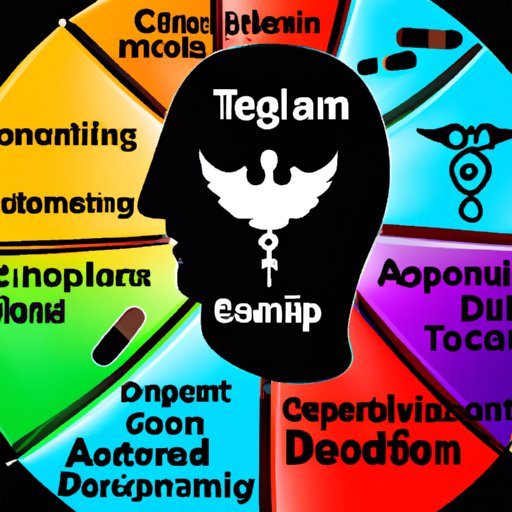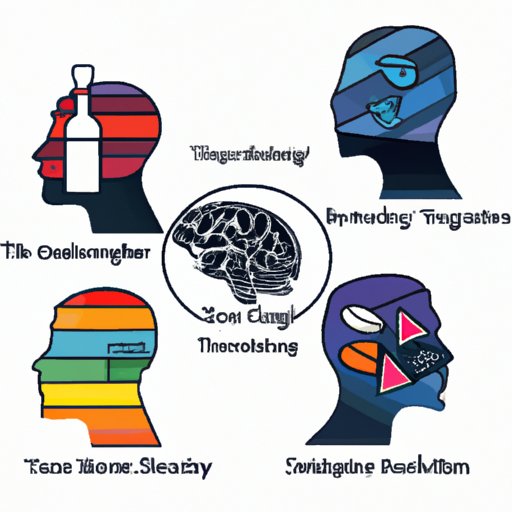Introduction
Addiction is a chronic, relapsing disorder characterized by compulsive drug seeking and use despite harmful consequences. It is a major public health issue that affects an individual’s physical, mental, and social wellbeing. Mental health encompasses our emotional, psychological, and social well-being. It affects how we think, feel, and act as we cope with life. The relationship between addiction and mental health is complex and can have long-term implications for both physical and psychological health.
The Physical, Emotional, and Psychological Effects of Addiction
Substance abuse alters brain chemistry, leading to changes in behavior, emotions, and thinking. For example, drugs like cocaine and methamphetamine increase dopamine levels in the brain, which can lead to feelings of euphoria and pleasure. Over time, these drugs can cause significant changes in brain chemistry, resulting in impaired judgment, memory problems, and difficulty controlling impulses.
Addiction also has a profound effect on emotional well-being. People who are addicted to drugs or alcohol may experience extreme mood swings, anxiety, depression, and even suicidal thoughts. They may also have difficulty forming and maintaining relationships with friends and family members. These emotional issues can worsen over time if addiction goes untreated.
Finally, addiction has been linked to mental illness. Studies have found that people who are addicted to drugs or alcohol are more likely to suffer from depression, anxiety, and other mental health disorders. In some cases, addiction can even be a symptom of an underlying mental health condition.

Role of Genetics in Addiction and Mental Health
Genetics play an important role in addiction and mental health. Research has shown that people who have a family history of addiction are more likely to develop a substance use disorder. Similarly, studies have found that certain genetic factors can increase the risk of developing mental health conditions such as depression and anxiety.
The influence of genetics on mental health is complex and not fully understood. However, researchers believe that genes play a role in regulating how the brain processes and responds to stress and other environmental factors. This could explain why some people are more vulnerable to mental health issues than others.

Treatment Options for Addiction and Mental Health Issues
The most effective way to treat addiction and mental health issues is to seek professional help. Psychotherapy, or talk therapy, can help people identify the root causes of their substance use and learn healthier coping strategies. A therapist can also provide support and guidance to help people manage their emotions and make positive changes in their lives.
In some cases, medication may also be necessary to manage mental health issues. Antidepressants, anti-anxiety medications, and other psychiatric drugs can help regulate brain chemistry and reduce symptoms of mental illness. For people with a severe substance use disorder, rehabilitation programs may be recommended to help them break their addiction and stay sober.
Strategies for Improving Mental Health and Reducing Addiction Risk
There are several strategies that can help improve mental health and reduce the risk of addiction. Stress management techniques, such as meditation, mindfulness, and yoga, can help people better manage their emotions and cope with difficult situations. Making healthy lifestyle choices, such as eating a balanced diet, exercising regularly, and getting enough sleep, can also help improve mental health.
Finally, it’s important to seek professional help when needed. Talking to a mental health professional can help you better understand your mental health and determine the best course of action for managing symptoms. If you or someone you know is struggling with addiction, there are resources available to help.
Conclusion
Addiction and mental health issues are closely linked. Substance abuse can have a significant impact on brain chemistry, leading to changes in behavior, emotions, and thinking. Genetics can also play a role in addiction and mental health, making some people more vulnerable to developing these conditions. The best way to treat addiction and mental health issues is to seek professional help. Psychotherapy, medication, and rehabilitation programs can all help people manage their symptoms and make positive changes in their lives. Additionally, practicing stress management techniques, making healthy lifestyle choices, and seeking professional help can all help improve mental health and reduce the risk of addiction.
(Note: Is this article not meeting your expectations? Do you have knowledge or insights to share? Unlock new opportunities and expand your reach by joining our authors team. Click Registration to join us and share your expertise with our readers.)
